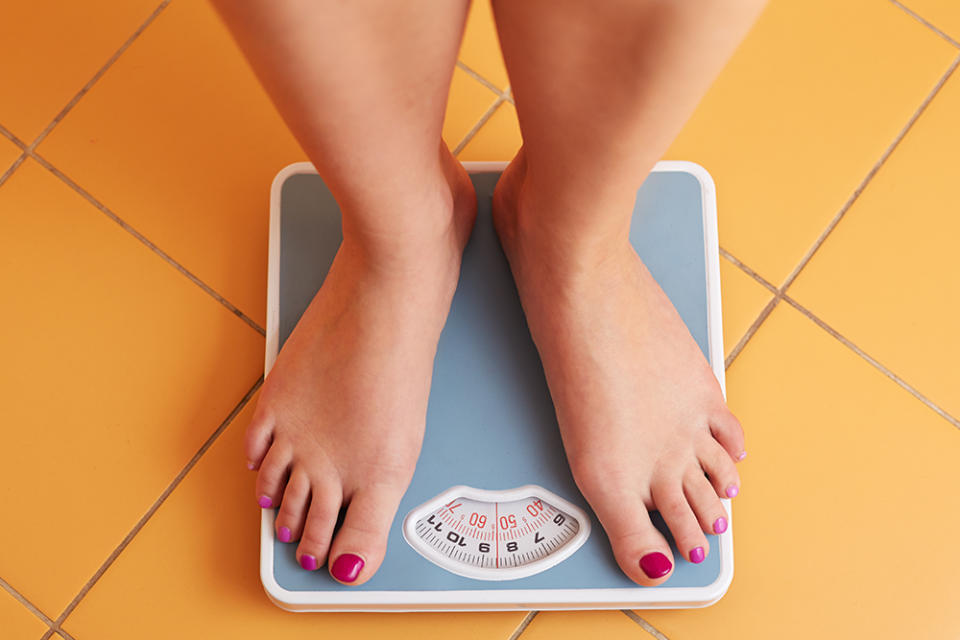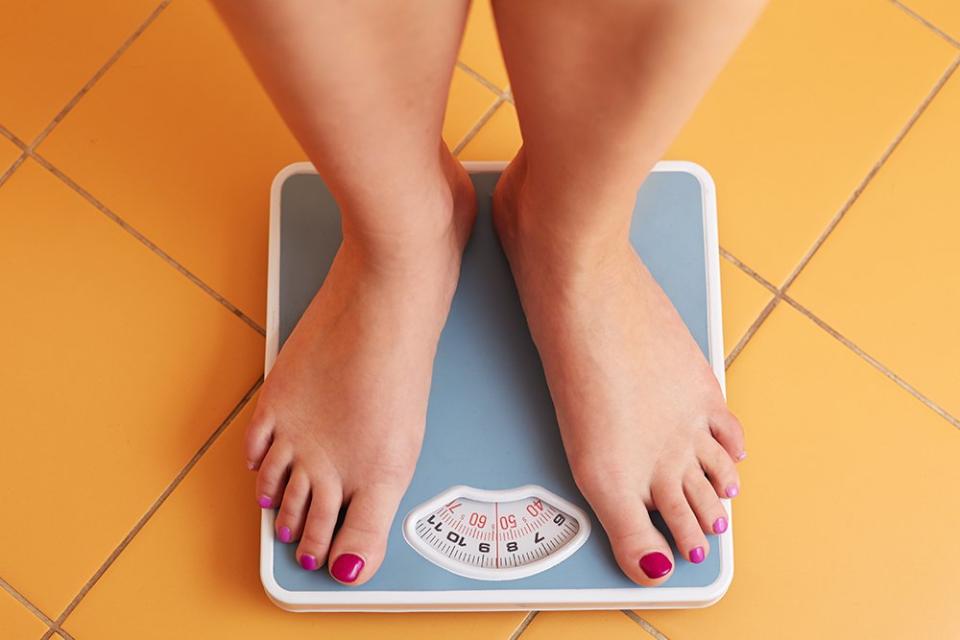Your Weight and Fertility: There Is a Connection

You know that maintaining a healthy weight is important during pregnancy, but did you know that your weight can also affect your chances of getting pregnant?
Up to 12 percent of all infertility cases are are the result of a woman being either over- or underweight. The reason: Our fat tissue secretes hormones, including estrogen, that regulate ovulation. If you have too much body fat, excess hormones can interfere with ovulation and conception; too little body fat means you won't produce enough of the hormones you need to get pregnant. It gives a whole new meaning to the term "baby weight."
"If body weight and body fat are either too high or too low, estrogen and progesterone concentrations in the body go down," explains Nancy Williams, Sc.D., an associate professor of kinesiology at the Pennsylvania State University in University Park. "An adequate estrogen level is needed to stimulate ovulation." Underweight women can have regular menstrual bleeding, but the cycles are likely to be anovulatory, which means ovulation doesn't occur.
Low progesterone levels can affect the luteal phase, the second half of your menstrual cycle. Having a luteal phase disturbance (LPD) means you might ovulate normally and fertilization occurs, but there's not enough time for the fertilized egg to properly implant in your uterus. Getting your period less than 10 days after you ovulate (as determined by an ovulation kit or a blood test) is a red flag for an LPD.
RELATED: 8 Surprising Facts About Fertility
If You're Overweight
"Carrying your weight around your abdomen is especially concerning, since fat cells in that area tend to release more of the hormones that interfere with reproduction," says Liyun Li, M.D., a fertility specialist at the Pacific Fertility Center, San Francisco. And heading into a pregnancy if you're obese can complicate the pregnancy, putting you at a higher risk of diabetes, blood pressure, and birth complications, including the need for a C-section.
Weighing too much can make conceiving as difficult as weighing too little. "Overweight and obesity exacerbate a host of things, such as causing anovulatory infertility and diminishing the response to fertility medications," says Richard S. Legro, M.D., a professor of obstetrics and gynecology at the Pennsylvania State University College of Medicine in Hershey.
One problem caused by excess weight is insulin resistance. Women with this condition have higher levels of free androgens (male hormones) and free estrogen that can adversely affect ovulation and embryo implantation. A certain level of hormones is needed to promote a healthy uterine lining, or endometrium. When there is more tissue (read: fat) to "soak up" those hormones, the endometrium is deprived of them.
Polycystic ovarian syndrome (PCOS), one of the leading causes of infertility, is worsened by obesity and insulin resistance. "All women with PCOS have ovulatory dysfunction that becomes more severe as weight increases," Legro says. However, not all overweight or obese women have PCOS, and not all women with PCOS are overweight. The classic signs of PCOS are irregular periods and excess body hair; if you have these symptoms, consult your doctor.
Though losing weight won't necessarily "cure" PCOS, numerous studies have found that even a small decrease in weight and body fat can improve ovulation in overweight and obese women. "The brain is very sensitive to 'fatness' signals," explains Rose E. Frisch, Ph.D., author of Female Fertility and the Body Fat Connection (The University of Chicago Press).
If You're Underweight
Being underweight isn't good, either. "When the body senses that it's not getting enough energy from calories, it shuts down ovulation," Dr. Li says. And being underweight while pregnant is dangerous to the baby, who may not get the nutrients needed to hit a healthy birth weight.
Gaining weight if you're underweight could help. In an Arizona State University study, when underweight female athletes who were not having periods increased their body fat from 8.2 percent to 14.4 percent, they started having normal cycles.
Determining Your Healthy Weight
To find out if you're at a healthy body mass index (BMI), use a BMI calculator. The best way to gain or lose weight is through a healthy diet and exercise — talk to your doctor about a plan that's right for you.
If you're at a healthy weight but your partner isn't, encourage him to drop a few pounds: Being overweight can lower sperm count and motility (movement).


